Are Your Garden Seeds Still Good? Here’s How To Tell
Don't waste time and effort! Before you get growing, check to see if your seeds will germinate with these helpful tips.
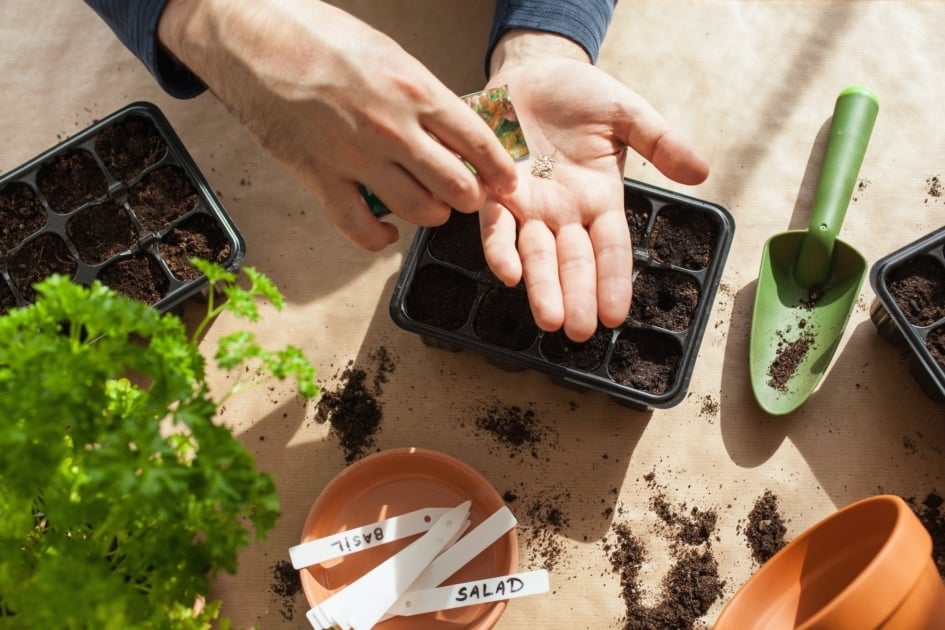
Before you plant older seeds find out if they’ll still germinate with these helpful tips.
If you’ve started planning your spring garden, you might be taking stock and seeing what materials you have to work with. Are you wondering if the seeds you intended to use last year are still good? Or, what about those heirloom seeds you got as a wedding favor a few years back?
Just like most things in nature, seeds have a shelf life and you need to determine your seeds’ ability to germinate before you start planting. You don’t want to waste your time and effort!
Seed Viability – In A “Nutshell”
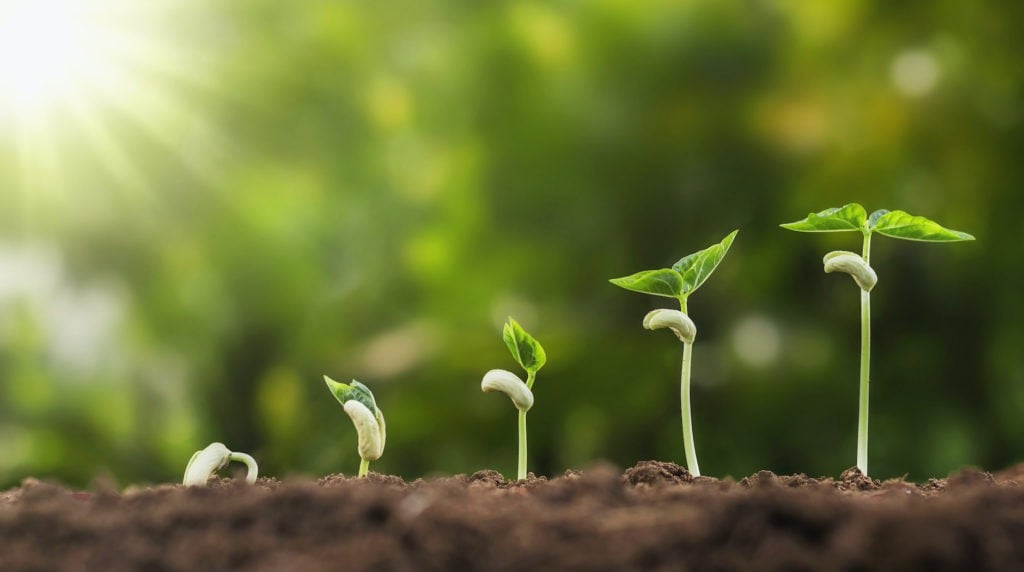
Most brand new seeds have a 90% germination rate, meaning that 9 out of every 10 seeds you plant should grow. But if you’ve got seeds that have been hanging around for three years, the germination rate drops to around 60%. That means you’ll need to plant a higher number of these older seeds to increase your chances of growing something.
Seed Viability Test For Older Seeds
If you have older seeds, it’s wise to do a quick viability test prior to planting when using older seeds. Here’s what to do:
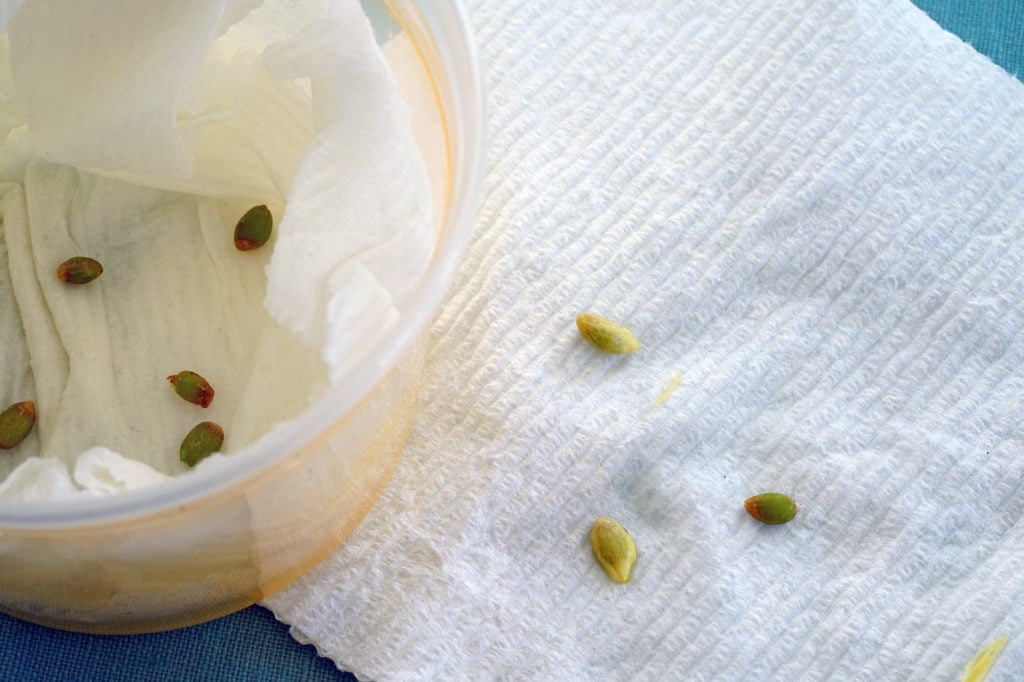
- Fold a dampened paper towel in half.
- Take 2-3 seeds and place them on the damp towel.
- Fold the towel over the seeds and place them in a zippered plastic bag or airtight container in a warm location.
- After a few days, open the bag and take a peek to see if any sprouted. This will give you a good gauge of how your seeds are germinating.
If the germination rate is low, but there is still some viability (for example, maybe only 2 of the seeds in your test sprouted), simply plant more of those seeds in the garden, knowing that not all may sprout. You’re just increasing the sprouting odds.
If none of them sprout, obviously, you’ll have to purchase fresh seeds.
Seed Storage Tips
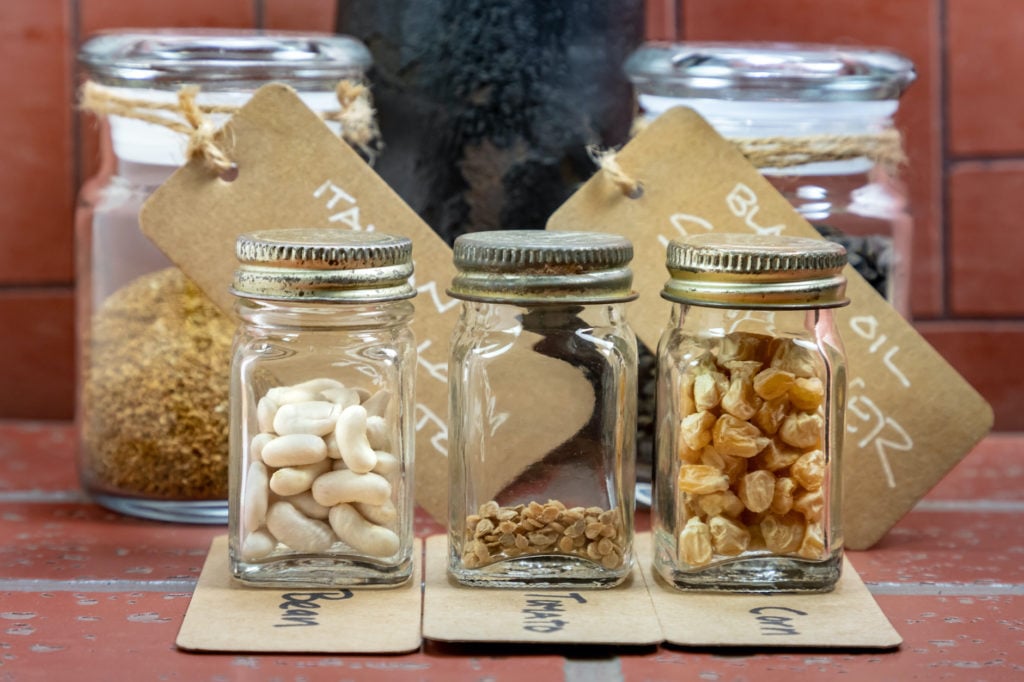
The key to keeping your seeds viable for a few seasons is proper storage. Be sure to do the following:
- Keep your seeds in a cool spot that offers a consistent temperature. Your best bet is to put them in a moisture-proof sealed container (if they’re already in packets, you can keep them right in the packets while storing) and store in your freezer or refrigerator. It is extremely important the seeds are 100% dry or mold will develop. You can even add some rice to the container to wick away any possibly moisture.
- Keep them out of direct sunlight.
- Keep them away from any humidity or moisture.
How you store them won’t only be for the long-term, it will be your day-to-day access while you’re outside sowing.
Storage Life of Vegetable Seeds
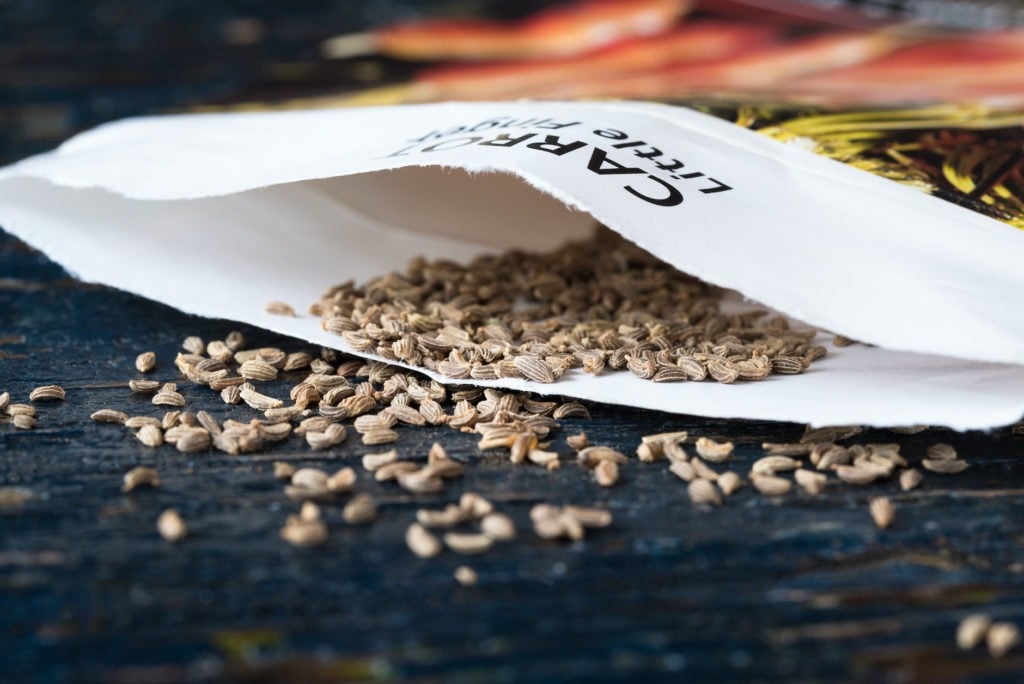
Below is a list of the approximate lifespan of your favorite vegetable, herb, and flower seeds when stored properly. Keep in mind this is just an estimate—many seeds might be viable much longer, while others a bit shorter.
| Vegetable | Storage Life |
| Asparagus | 3 years |
| Beans | 3 years |
| Beets | 4 years |
| Broccoli | 4 years |
| Brussels sprouts | 4 years |
| Cabbage | 4 years |
| Carrot | 3 years |
| Cauliflower | 4 years |
| Celery | 3 years |
| Chard, Swiss | 4 years |
| Chicory | 4 years |
| Chinese Cabbage (Bok Choy) | 3 years |
| Corn, Sweet | 2 years |
| Cucumber | 5 years |
| Eggplant | 3 years |
| Endive | 5 years |
| Kale | 4 years |
| Leek | 2 years |
| Lettuce | 4 years |
| Melon | 5 years |
| Mustard | 4 years |
| Okra | 2 years |
| Onion | 1 year |
| Parsnip | 1 year |
| Pea | 3 years |
| Pepper | 3 years |
| Pumpkin | 4 years |
| Radish | 4 years |
| Rutabaga | 4 years |
| Spinach | 2 years |
| Squash | 4 years |
| Tomato | 5 years |
| Turnip | 4 years |
| Watermelon | 4 years |
Storage Life of Herb Seeds
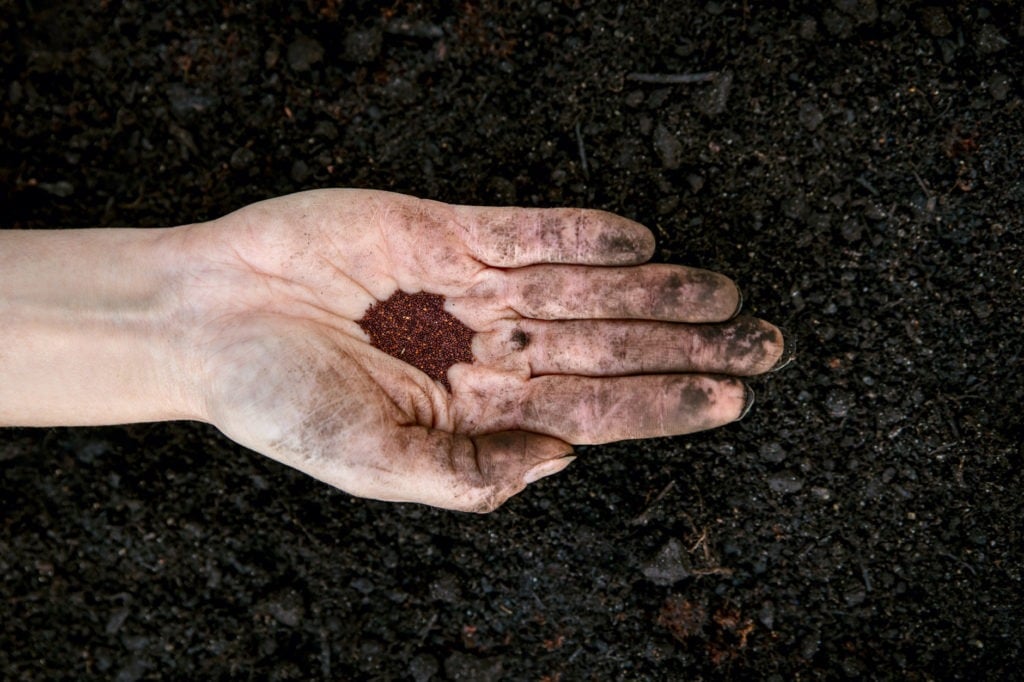
| Herb | Storage Life |
| Anise | 3 years |
| Basil | 5-7 years |
| Catnip | 5 years |
| Chives | 1 year |
| Cilantro | 5-7 years |
| Dill | 3 years |
| Fennel | 4 years |
| Lavender | 5 years |
| Oregano | 2 years |
| Parsley | 1 year |
| Sage | 3 years |
| Savory | 3 years |
| Thyme | 3 years |
Storage Life of Flower Seeds
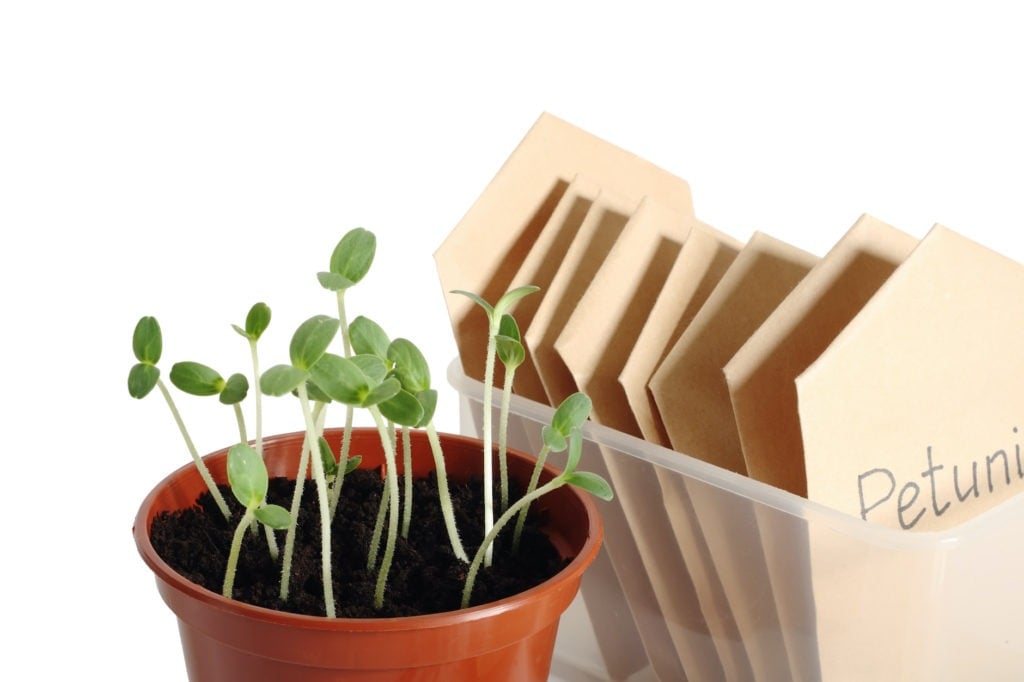
| Flower | Storage Life |
| Ageratum | 4 years |
| Alyssum | 4 years |
| Amaranth | 3 years |
| Aster | 1 year |
| Baby’s Breath | 2 years |
| Bachelor’s Button | 3 years |
| Calendula | 5 years |
| Celosia | 4 years |
| Clarkia | 2 years |
| Coleus | 2 years |
| Columbine | 2 years |
| Cosmos | 3 years |
| Dahlia | 2 years |
| Daisy | 3 years |
| Delphinium | 1 year |
| Dianthus | 4 years |
| Foxglove | 2 years |
| Geranium | 1 year |
| Hibiscus | 3 years |
| Hollyhock | 3 years |
| Impatiens | 2 years |
| Larkspur | 1 year |
| Lobelia | 3 years |
| Lupine | 2 years |
| Marigold | 2 years |
| Nasturtium | 5 years |
| Nicotiana | 3 years |
| Pansy | 2 years |
| Petunia | 3 years |
| Phlox | 1 year |
| Poppy | 4 years |
| Salvia | 1 year |
| Snapdragon | 3 years |
| Sweet Pea | 3 years |
| Verbena | 1 year |
| Zinnia | 5 years |
As a general rule, most annual flower seeds are viable for 1-3 years and perennial seeds for 2-4 years.
Other Seed Viability Considerations
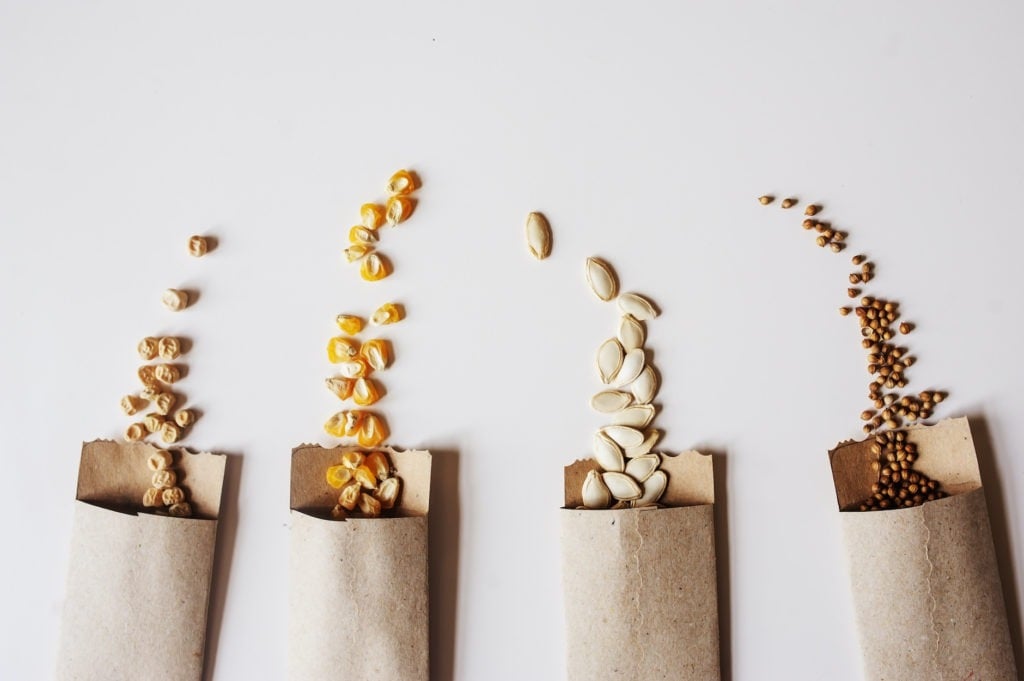
While age, variety, and storage are key factors in how your seeds germinate, you should also consider the following:
- Light — Some seeds need light to germinate, while others need dark.
- Pre-soaking and Scarification—Some seeds have tough outer seed coats that can make it difficult for a seedling to break through. To soften that outer cover, you can presoak the seed overnight. You can also use sandpaper or a knife to gently scratch the seed coat to create an opening through which the seedling can emerge. Your seed packet will tell you if this is required.
- Cold Treatment— Some seeds need to be exposed to a period of cold prior to being able to germinate. How cold and for how long, all depends on the plant. But most are easy enough to just be placed in the refrigerator for a few weeks prior to sowing. Your seed packet will instruct you if this is required.
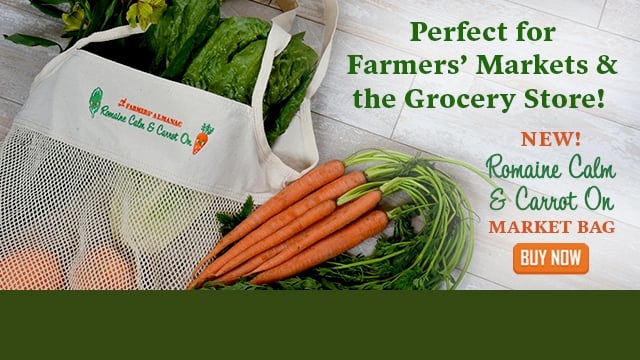
Helpful Links
- Get access Farmers’ Almanac’s Gardening by the Moon calendar here.
- Which Seeds Need To Be Prepped Before Planting?
- To Seed or Not To Seed – Learn more about “direct sowing.”
- Shopping For Seeds
- Understanding Seed-Catalog Terminology

Allison Vallin
Allison Vallin is the Farmers' Almanac Art Director. When she's not busy designing, you can find her out in her permaculture paradise in Maine where she lives with her husband, two sons, pets, and a flock of chickens. With over two decades of organic gardening experience, she loves sharing the secrets of living the good life. Visit her on her Finch + Folly website, or find her on Instagram and Facebook.


I have to try this out! I was given a ton of seeds from a family member that might be good to plant.